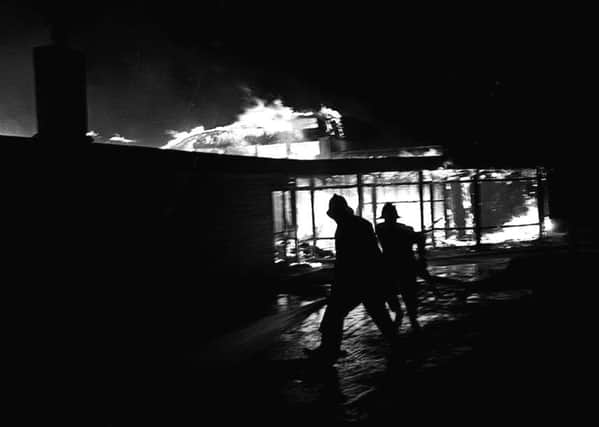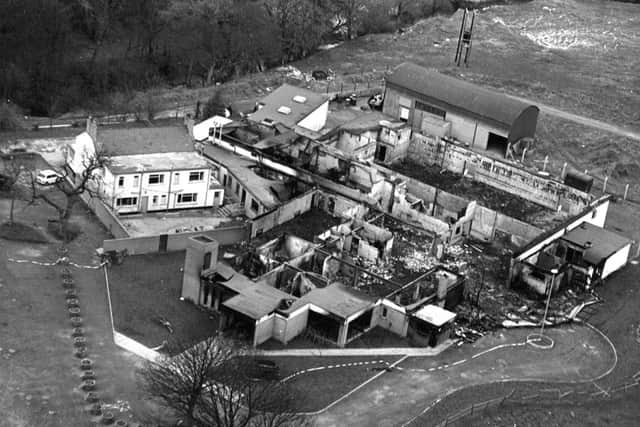If unionists don’t know who they are, how can they know where they’re going?


Speaking from a purely TUV perspective I am very pleased with the vote my party leader Jim Allister received on Thursday past.
I think it was a remarkable achievement for a party which had disappointing results just weeks before in the council elections to mount the campaign we did and for Jim Allister to finish ahead of both the UUP and SDLP with over 90,000 votes.
Advertisement
Hide AdAdvertisement
Hide AdBut the point here is to look at why Unionism lost a seat to Alliance. Not for the first time in the last few years Unionism has got a jolt at the ballot box.


Firstly, tens of thousands of Unionists sat at home. The reasons are many but one of them was the fact that not a few concluded that being asked to vote in an EU election defied their wishes in the referendum. There were over 349,000 leave votes cast in Northern Ireland in 2016 yet under 246,000 cast for the Unionist candidates in the EU election – all of whom stood on some sort of leave platform.
It seems reasonable to conclude that not a few of the “missing” 103,000 concluded that they should not vote in an election to a body they had already voted to leave. While I understand the sentiment of those people the act of staying at home means that a proper Brexit, particularly for Northern Ireland, is more difficult.
By contrast, remainers were motivated to vote. They also had no qualms about voting in an election to a body which they believe we should stay part of. Furthermore, they had what I would consider their mistaken beliefs about Brexit confirmed by a daily diet of anti-Brexit stories over the past two years.
Advertisement
Hide AdAdvertisement
Hide AdBut Unionism also needs to realise the people voting Alliance are not “their” voters. Every Unionist party knows that there are certain areas in any “Unionist” town which are largely pointless to canvass as there is a hostile reaction to anyone giving out literature which carries the National Flag.


Unionists from any party also know that this is largely a generational problem with young voters more likely to express disinterest in Unionist literature than their parents and grandparents. Why is that?
Unionism cannot wash its hands of all the scandal which has engulfed it. People might not remember the details about Red Sky, Nama, cash-for-ash or overseas trips but they do link them to Unionism. The actions of the lead Unionist party in government has tarnished the brand to the extent that all Unionist parties are seen as damaged goods.
There is also a surprising number of times when the Unionist case goes by default on the broadcast media. How often do you turn on a current affairs program only to hear the presenter say they asked a Unionist party to take part only to be told that no one was available? The case for the Union – and there is a very, very solid case for the Union and for that matter against the backstop in economic and other grounds – is too often allowed to go by default. The most basic duty of any Unionist politician is to be an evangelist for the Union yet there are precious few who could be described as such.
Advertisement
Hide AdAdvertisement
Hide AdIn fairness to the News Letter, Ben Lowry has repeatedly presented an excellent case for Unionism Plc on the broadcast media. But you would be hard pressed to think of other voices.
But an even more significant factor is the nature of the process over the past 20 years. The end point of the Belfast Agreement is Irish unification (as demonstrated by the fact that you can only ever be asked by way of referendum if you are now ready for a untied Ireland and once it is put once the question will be put again every seven years). That being so a large part of the process has been about removing anything British while making Northern Ireland more Irish.
For example, pre 1998 the Union Flag flew from our police stations. No longer. Pre 1998 we had the Royal Ulster Constabulary. No longer. Pre 1998 Unionists rejected any role for the Republic in the internal affairs of Northern Ireland. No longer. The link with the UK pre 1998 was very official. Flying the National Flag now is seen as disruptive, almost subversive,and an act of defiance to the “peace process”.
Closely linked to that is the “peace process” rehabilitation exercise for terrorists. Victims have been pushed to the side. The sacrifice of the RUC, UDR and ordinary members of the public during the terrorist campaign has been airbrushed. To bring it up will see instant accusations of bringing us back to “the bad old days” – without ever providing clarity as to who would take us there.
Advertisement
Hide AdAdvertisement
Hide AdA generation has grown up which not only hasn’t experienced the terror of the Troubles but doesn’t know what it was. One of the most striking things I’ve heard in recent years was the explanation as to why young members of the DUP sang “Arlene’s on fire” at La Mon. The press were told that the people were young and therefore didn’t know about the IRA firebombing of the hotel in 1978 which lead to 12 civilians at a dinner dance being burned to death. If young people interested in politics don’t know that, how will the general “unionist” population know why it’s important to resist Sinn Fein?
Which brings me to another point – once you grant Republicans a place in government for ever and partner with them you forfeit the right to highlight what they did.
That’s why only Jim could highlight Bomber Anderson’s past. Other Unionists forfeited that right when they agreed to have her as a junior minister with responsibility for (among other things) victims’ issues.
And two other issues occur to me.
The first is the lack of a Unionist / Protestant identity. If you are a nationalist young person you go to a school which reinforces your identity, play sports which reinforce your identity, and many learn a language which reinforces your identity. What gives a young person from a Unionist background a sense of identity?
Advertisement
Hide AdAdvertisement
Hide AdAnd finally – the decline of Protestantism is a huge problem for Unionism. Think about the foundation document of Northern Ireland, the Ulster Covenant. Think of how that document captured the imagination of a people. Then ask yourself – how many Unionists today would know what a Covenant is in Biblical sense or who the Covenanters of the 1600s were?
When you forget where you’ve come from don’t be surprised if people don’t have a clear idea of where they are going.
~ Samuel Morrison is a past Westminster, Assembly and council TUV candidate, and the party press officer